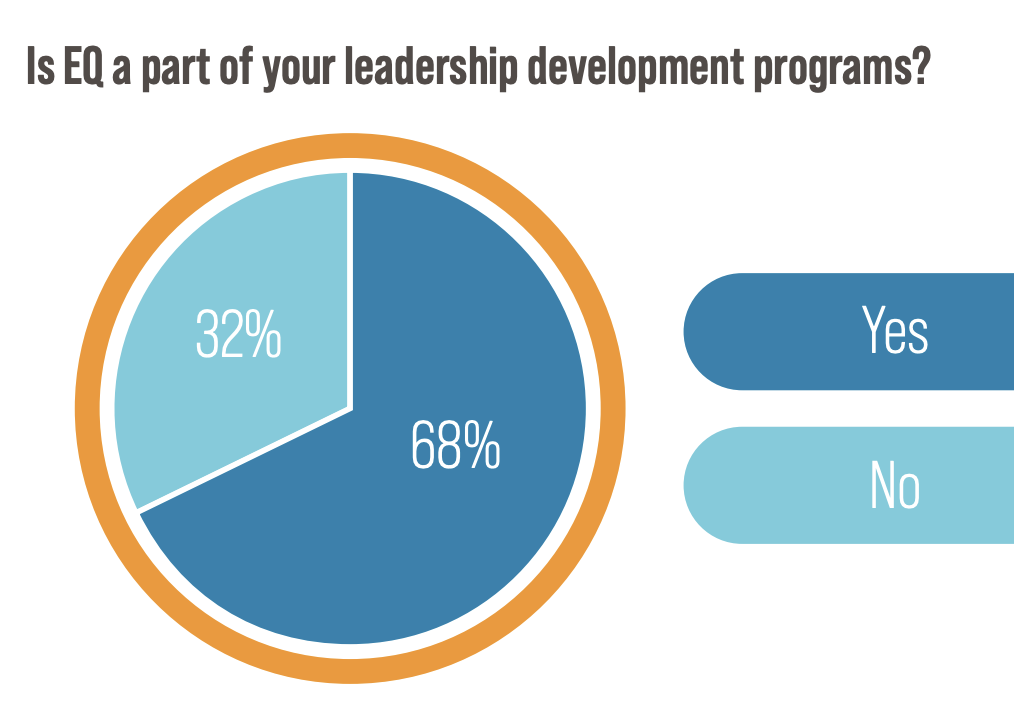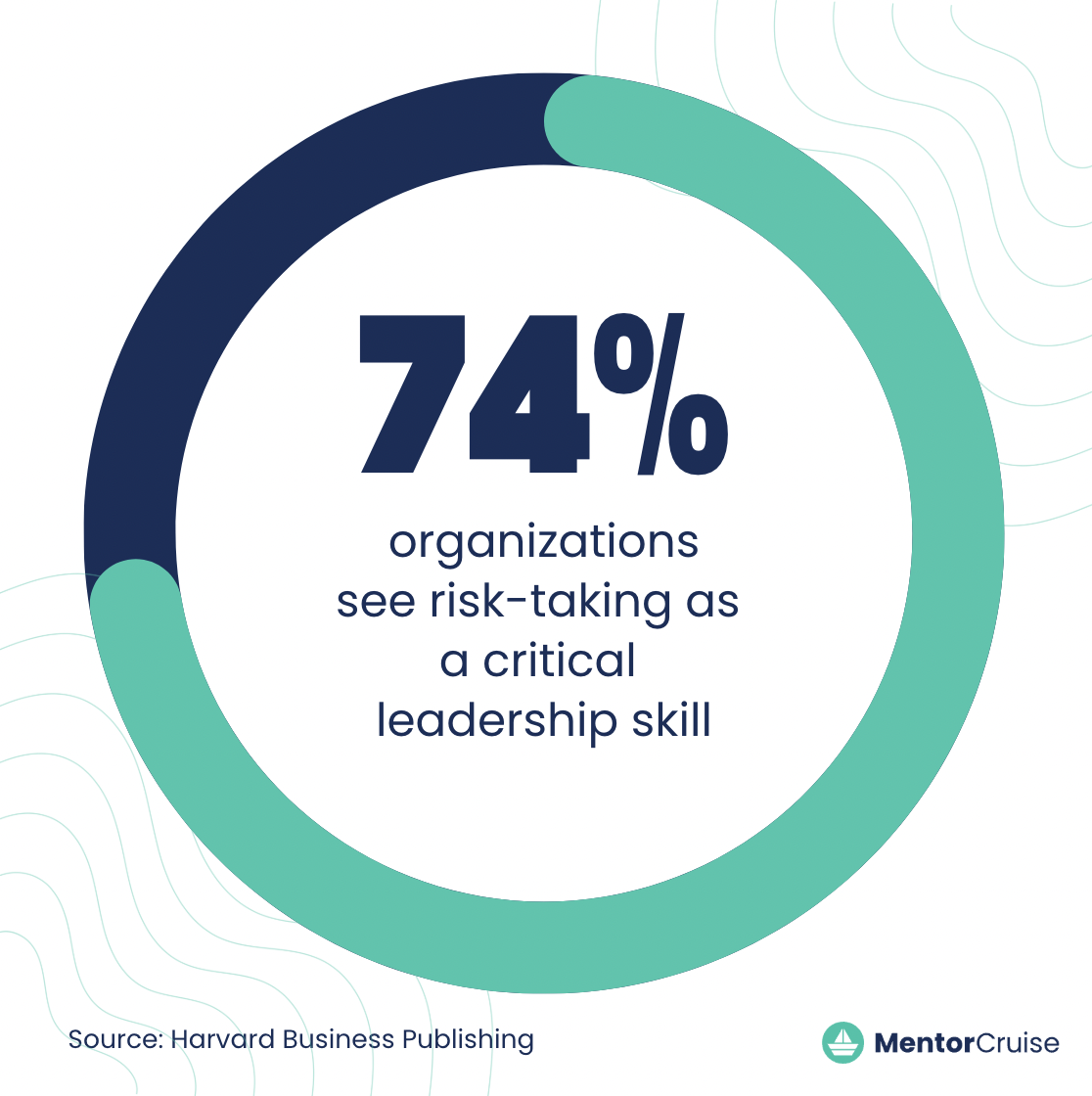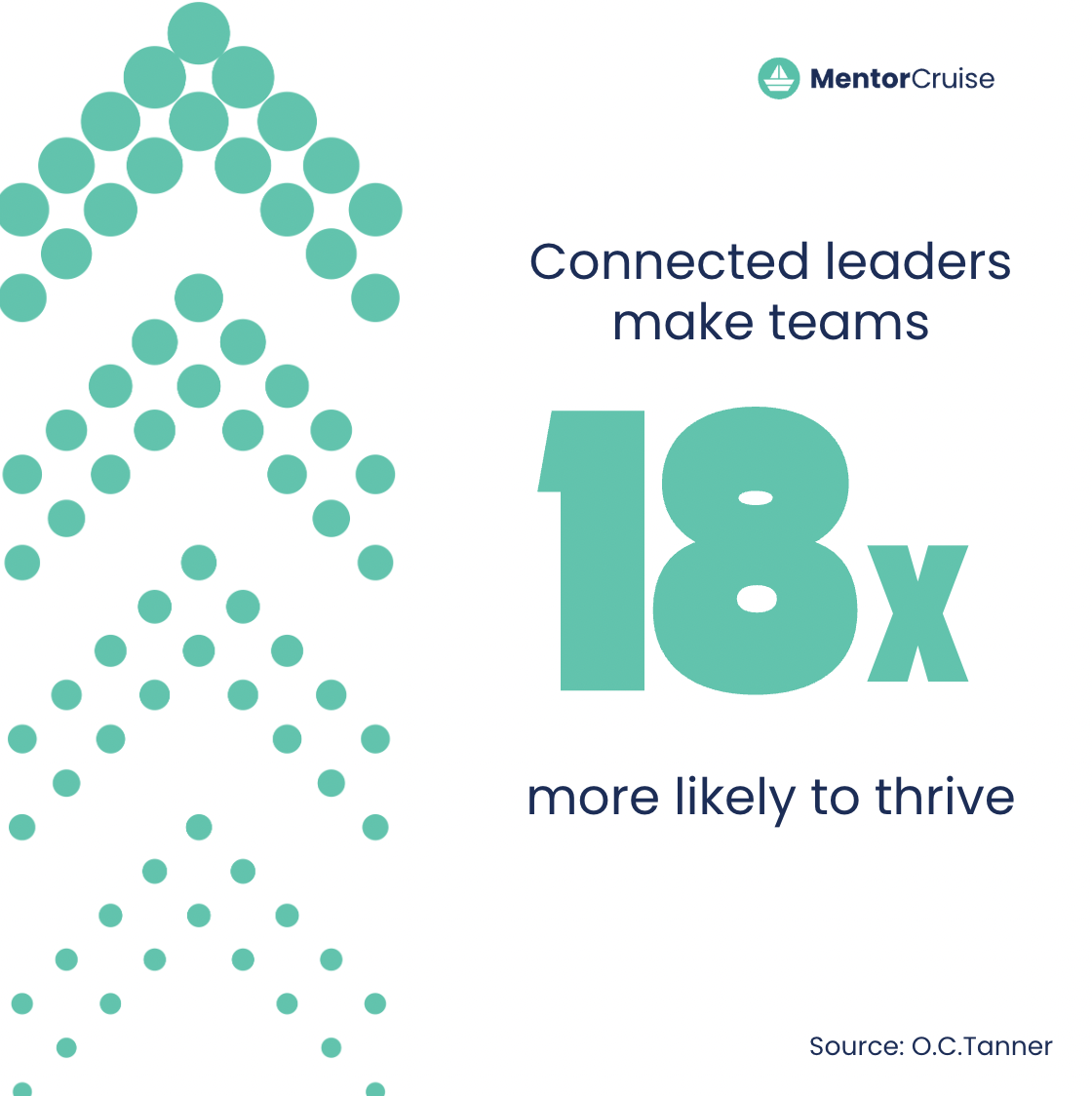It takes a lot to become an effective leader. Great leaders need to know how to navigate change, build cohesive teams, and solve problems in innovative ways.
But developing these skills on your own is tough.
That’s where a leadership mentor comes in.
Leadership mentors teach you how to take calculated risks, communicate empathetically, and coach your team to strive for improvement.
Let’s take a closer look at the top leadership skills you need in 2025 — and how a mentor can help you develop these qualities.
1. Emotional Intelligence
Emotional intelligence (EQ) is one of the most essential skills for successful leaders.
76% of organizations say leaders need high EQ to succeed in their company. (In fact, 68% of companies now include EQ training in their leadership development programs.)

But what is EQ?
EQ is a two-pronged skill. It’s the ability to recognize and manage your own feelings. At the same time, you need to respond empathically to the emotions of those you’re interacting with.
As Jack Welch, Chairman of General Electric, puts it …
“A leader’s intelligence has to have a strong emotional component. They have to have high levels of self-awareness, maturity, and self-control. They must be able to withstand the heat, handle setbacks, and when those lucky moments arise, enjoy success with equal parts of joy and humility.”
EQ helps leaders engage teams, manage tough situations, and foster a positive work environment.
A mentor can help you learn these skills by:
- Role-playing difficult situations, such as delivering tough feedback or managing team conflicts
- Coaching you on active listening skills and providing feedback on your communication style
- Encouraging you to identify emotional triggers and develop strategies to manage them
- Teaching you ways to offer your team positive reinforcement
2. Problem-Solving and Decision-Making
The best leaders use critical thinking to solve problems under pressure. Once they have an answer, they act on it decisively.
60% of organizations believe training in decision-making is essential for effective leadership. But most companies admit that critical problem-solving is the skill missing most from their organization.
A big part of decision-making comes down to confidence in your ability to think critically about a problem. This is where a mentor can help.
Mentors show you how to analyze the information you have. This boosts your confidence, so you’re making the best choices with what you have.
Your mentor can help you strengthen this skill by:
- Showing you how to make data-driven choices instead of relying on emotional reactions
- Offering practical problem-solving methodologies, like SWOT or Root Cause Analysis
- Giving you frameworks to analyze the effectiveness of your decisions
- Teaching you risk assessment systems
3. Coaching
Coaching skills are the number one focus for leadership training programs. These skills help you improve your team’s performance and inspire professional development.
In 2025, teams need diverse abilities to tackle the wave of innovation from technology and globalization. Good leaders know how to actively coach practical skills and teach employees to become self-learners.
With a mentor, you’ll learn coaching tactics to support and empower your entire team.
They might foster this skill by:
- Providing frameworks for goal setting to help employees embrace their future careers
- Giving you language for constructive feedback and positive reinforcement
- Showing you ways to instruct and supervise, rather than micromanaging
- Teaching you active listening skills to understand team needs
4. Leading Change
Change is the only constant. Or so they say.
This is especially true in 2025, where a connected world is running at a lightning-fast pace.
It’s up to strong leaders to teach teams how to use change to create growth.
In fact, change leadership is the second most important focus for companies training leaders. 74% say leaders need to give clear direction in dynamic situations.
Beaches of Normandy Tours is a great example of strong change leadership.
As its General Manager Severine Diaz explains …
“Building a business takes passion and persistence. Moving from the Utah Beach Museum to launching Beaches of Normandy Tours showed us the value of a strong mindset. We knew we had to stay focused and dedicated to our vision.”
A mentor helps you build resilience and adaptability to lead uncertain teams through transitions.
They might guide you by:
- Offering practical ideas for maintaining a positive work environment during periods of change
- Showing you ways to model transparent communication to ease resistance to change
- Teaching strategies to align teams with a shared goal during transitions
- Helping you develop a business strategy for managing uncertainty
- Helping you stay focused under pressure
5. Risk-Taking
Calculated risks encourage better business performance. This is why 74% of organizations see risk-taking as a critical leadership ability.

(Image created by the author)
Yet many leaders struggle with making risky decisions. They worry about the fallout of making a wrong choice. (But this anxiety leads to inaction — which stalls growth.)
But when you take risks, you can lead your team into innovative territory.
Take Alan Bernau Jr., owner of Alan’s Factory Outlet, for example.
He left his job as a state trooper to offer carports for sale online. Through strategic risk-taking, he’s built a successful online store that supplies customers all over the USA.
With a mentor, you’ll learn how to assess risks wisely. They’ll show you how to pick the most viable risks and act with confidence.
They might do this by:
- Coaching you how to balance critical thinking with creative thinking
- Encouraging a growth mindset through self-reflection exercises
- Simulating risk scenarios and coaching you through them
- Teaching you risk evaluation mechanisms
- Teaching you the importance of effective communication to build trust with your clients
6. Conflict Management
Conflict arises in all areas of business — from team relations to external stakeholder debates. It’s up to you, as a leader, to handle this conflict with neutrality.
(75% of organizations say conflict resolution is a vital skill for leadership success.)
Imagine a vendor’s delivery goes wrong. If you have a strong understanding of vendor management best practices for conflict, you can do your best to preserve the relationship. Otherwise, you could risk ruining the relationship and cutting off your supply chain.
A mentor helps you learn how to navigate difficult situations with confidence.
They might help you develop this skill by:
- Assessing your conflict style using conflict resolution tools like the Thomas-Kilmann Conflict Mode Instrument
- Role-playing difficult conversations to practice neutral, solution-focused mediation
- Teaching practical de-escalation techniques for workplace disputes
- Practicing stress management techniques to pass on to your team
7. Empathetic Communication
Connected leaders make teams 18 times more likely to thrive. Empathetic communication is your key to understanding your team.

(Image created by the author)
This is why 76% of organizations believe leaders need empathy in communication and feedback sharing.
A mentor can help you become an open, authentic leader. They can show you how to connect with your team through transparent, empathetic communication.
Tactics they might use include:
- Practicing perspective-taking by imagining employee feelings in different situations
- Crafting frameworks and systems to facilitate team feedback empathetically
- Teaching you how to reflect emotions by mirroring speech
- Coaching you on reading nonverbal cues
8. Building Cohesive Teams
Effective leaders encourage teams to trust each other and collaborate.
They use team-building activities, communication frameworks, and collaboration tools to bring everyone together. Some even go as far as booking team trips—or RV rentals for road-trip-style corporate retreats.

If you need help with this, a mentor can help you practice team-building techniques. They’ll show you how to leverage your team’s diverse strengths to support one another.
Your mentor might do this by:
- Teaching you how to organize team-bonding activities to strengthen workplace relationships
- Coaching you on how to steer individual strengths toward achieving a common goal
- Helping you assess team goals and roles so you understand who fits where
- Helping you find the right technology and tools to facilitate collaboration
Improve Your Leadership Skills with 1:1 Mentorship Now
Strong leadership doesn’t happen overnight. To make the right calls under pressure, handle conflict, and keep your team on track, you need real feedback from someone who gets it.
A mentor helps you pinpoint weaknesses, sharpen decision-making, and apply leadership skills where they actually matter. No guesswork, no generic advice — just direct guidance tailored to your growth.
Keep in mind the eight leadership qualities you can cultivate with a mentor to become a great leader, like coaching, risk-taking, and empathic communication.
PS: Need 1:1 mentorship support? Find a leadership mentor on MentorCruise now.







